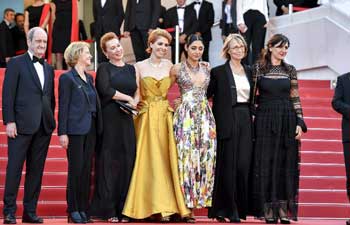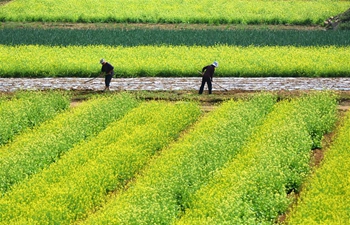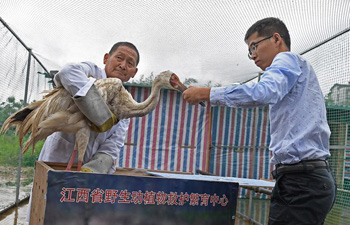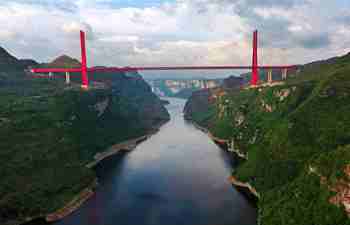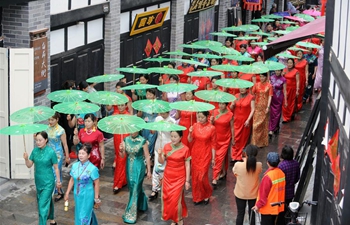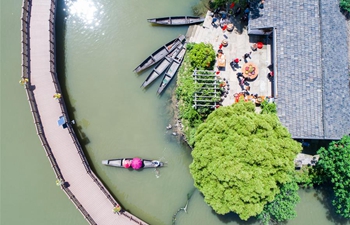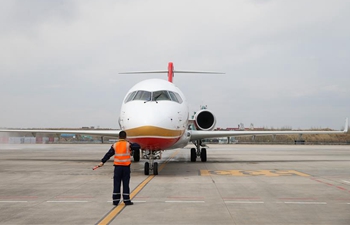
Greek Foreign Minister Nikos Kotzias (R) and his Hungarian counterpart Peter Szijjarto attend a press conference in Sounion, Greece, May 11, 2018. Foreign ministers of the Visegrad Group and Balkan EU member states on Friday reiterated their commitment to deepen cooperation to address common challenges during a meeting at Sounion. (Xinhua/Marios Lolos)
SOUNION, Greece, May 11 (Xinhua) -- Foreign ministers of the Visegrad Group and Balkan EU member states on Friday reiterated their commitment to deepen cooperation to address common challenges during a meeting at Sounion, 75 km southeast of Athens.
The ministers of Hungary, the Czech Republic, Slovakia and Poland which form the Visegrad Group, along with the four Balkan countries which are already EU members (Greece, Bulgaria, Romania and Croatia) convened with representatives of neighboring states aspiring to join in, as well as Cyprus, to exchange views on Europe's future.
The second ministerial meeting of the so-called "Visegrad 4 plus Balkan 4 plus" dialogue platform ended with delegates expressing willingness to work together to resolve pending issues, face future challenges and strengthen their voice regarding EU's enlargement.
In a changing world, Europe should be empowered to better serve its citizens, giving answers to real problems and crises, Greek Foreign Affairs Minister Nikos Kotzias and many of his counterparts said addressing the one-day event.
Concerning EU's global role, the Greek minister stressed that the EU should not insist on memoranda, sanctions, and measures -- such as embargoes -- against third parties.
"We had a very fruitful discussion exchanging views and ideas. We talked openly and honestly," Kotzias said during a press conference at the end of the meeting.
"It is a vital interest of the EU to accelerate enlargement. The more we are, the stronger we are," said on his part during the press briefing Peter Szijjarto, minister of foreign affairs of Hungary, the rotating presidency of the Visegrad group.
Referring to migration, an issue which has caused rifts within Europe in recent years, he underlined that the position of the member states of the Visegrad group is clear.
"We must not encourage migration. We must stop migration," the Hungarian minister stressed.
On the sidelines of Friday's event, foreign minister of the Former Yugoslav Republic of Macedonia (FYROM) Nikola Dimitrov referred to Saturday's talks with Kotzias and UN special envoy Matthew Nimetz in Greece regarding the name dispute between the two neighboring countries.
"We saw the other day the two Koreas (DPRK and ROK) are making progress. If they can do that, we ... will hopefully be able to do the same and better," Dimitrov told media here.
UN-mediated efforts have intensified in recent months in order to resolve the row which started in 1991 when FYROM declared independence from Yugoslavia choosing the name Macedonia, which is also the name of a northern Greek province.
The name dispute is a main obstacle in FYROM's accession to the EU.




